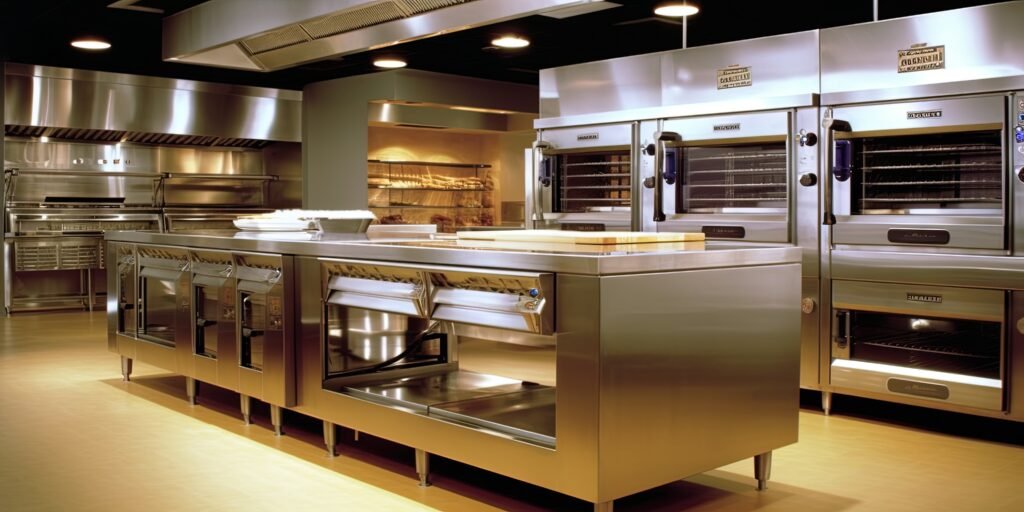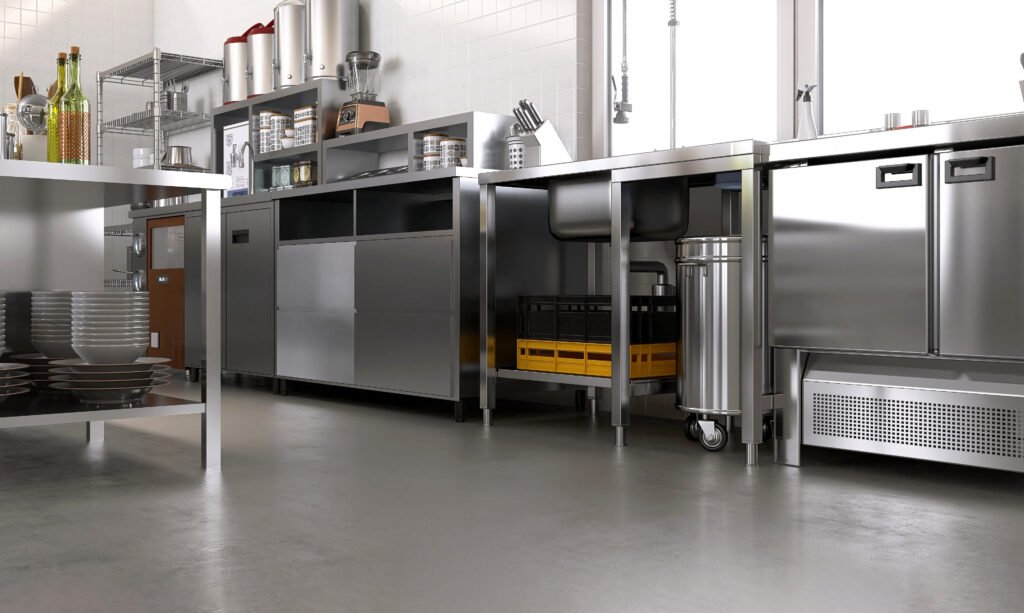How to Choose the Right Commercial Kitchen Flooring
Selecting the right commercial kitchen flooring directly affects safety, hygiene, durability, and compliance with health codes. In busy kitchens like restaurants, catering facilities, and institutional food prep areas, flooring needs to handle heavy foot traffic, resist chemicals and heat, and remain simple to clean. For kitchens in Franklin and Nashville, high-performance polyaspartic coatings are an advanced alternative to traditional epoxy, delivering superior resistance and faster installation.
1. Understand Your Kitchen’s Demands
Foot traffic
High-volume restaurants and cafeterias have constant staff movement, carts, and equipment rolling across the floor.
Heat and grease
Hot appliances and spills require materials that resist temperature changes and staining.
Heavy equipment
Racks, refrigerators, and mixers can cause impact damage if the floor is not strong enough.
Cleaning routines
Harsh chemicals and pressure washing can wear down certain materials.
2. Key Selection Criteria for Right Commercial Kitchen Flooring
When comparing flooring options, keep these performance factors in mind:
Slip Resistance
Choose a surface with strong traction, even when wet or greasy. Look for anti-slip ratings and textured finishes.
Durability and Impact Resistance
Select a floor that resists cracking, chipping, or peeling over years of use.
Hygiene and Easy Cleaning
Seamless, non-porous surfaces such as polyaspartic coatings prevent bacteria buildup.
Chemical and Heat Resistance
Floors must stand up to cleaning agents, sanitizers, and hot equipment without damage.
Code Compliance
Ensure your flooring meets local health and safety codes, and if required, USDA or HACCP standards.
Comfort for Staff
Cushioned materials or anti-fatigue mats help reduce strain for employees on their feet all day.
3. Comparing Popular Commercial Kitchen Flooring Options
Flooring Type | Pros | Cons |
Polyaspartic Coating | Seamless, superior chemical and UV resistance, fast installation, customizable | Higher upfront investment than basic epoxy |
Epoxy Resin | Durable, customizable colors, slip-additive options | Longer cure times, can chip over time |
Quarry Tile | Long-lasting, textured for traction, minimal upkeep | Hard underfoot, grout lines need extra cleaning |
Sealed/Polished Concrete | Extremely durable, low maintenance, customizable finish | Needs periodic resealing, less comfort without mats |
Porcelain/Ceramic Tile | Attractive, water-resistant | Slippery when wet, grout care needed |
Rubber/Vinyl/PVC | Cushioned, comfortable, slip-resistant | Can dent or warp under heavy heat and loads |

4. Expert Tips for Better Flooring Decisions
- Invest in professional installation – Proper surface prep ensures maximum lifespan.
- Match the material to your use case – Polyaspartic systems cure quickly and are ideal when downtime must be minimal.
- Plan for maintenance – Regular inspections, deep cleaning, and resealing keep floors performing at their best.
- Consider climate and humidity – Choose materials that handle local Tennessee temperature swings and moisture levels.
5. Why Durable, Seamless Flooring Matters for Franklin and Nashville Kitchens
High-use kitchens in Middle Tennessee require flooring that can keep up with intense daily demands. Polyaspartic coatings, expertly installed by Three Stone Concrete Coatings, deliver unmatched chemical resistance, UV stability, and quick installation times. Although they are known for garage and workshop applications, these same benefits make polyaspartic systems perfect for commercial kitchens where downtime is costly.



